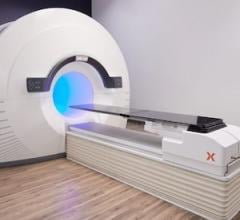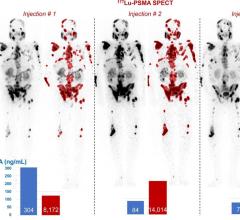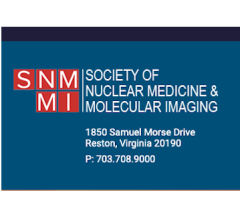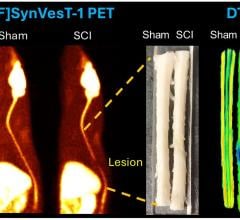
May 18, 2012 — Alzheimer’s disease (AD) is a neurodegenerative disease of the brain characterized by beta-amyloid plaques. Most patients are diagnosed late-stage in the disease or are misdiagnosed with another form of dementia. The three hallmark biomarkers for AD are neurofibrillary “tangles,” protein amyloid or “neuritic plaques” and granulovacuolar degeneration of neurons. Unfortunately there is currently no “live” brain imaging diagnostic tool per se, as the imaging that is used occurs only when the progression of the disease is late-stage or postmortem.
Computed tomography (CT) and magnetic resonance imaging (MRI) have been used for years to rule out other causes of dementia. More recently, positron emission tomography (PET) and cerebral metabolism using fluoro-deoxy-D-glucose (FDG) have been used to show characteristic changes in the brain and help rule in Alzheimer’s pathophysiological processes.
In April the U.S. Food and Drug Administration (FDA) approved Avid Radiopharmaceuticals’ (now part of Eli Lilly) Amyvid, a brain plaque diagnostic tool using florbetapir (F-AV-45). This radiotracer agent is delivered intravenously and is drawn to beta-amyloid plaque, a characteristic of AD. This allows a physician to see accumulations of amyloid in the brain, which in turn help the physician to determine whether a patient is suffering from some form of dementia, but cannot confirm a diagnosis of AD. Other diseases such as Parkinson’s disease, Huntington’s disease and Creutzfeldt-Jakob disease characteristically present with plaques as well, therefore physicians must still use mental and behavior cues to diagnose a patient with AD.
Amyvid’s half-life is close to 110 minutes, compared to the previously used radiotracer known as PiB (Pittsburg compound B [fluorescent analog of thioflavin T]), which offered a half-life of only 20 minutes. A longer half-life means more time allowed for the physicians to perform the injection and analysis of a patient. Unfortunately, the downside to using florbetapir is its high cost and patient exposure to radioactive material.
Amyvid is the only FDA-approved diagnostic PET tracer for imaging plaques in vivo, but there looks to be another agent in the pipeline that could potentially provide more diagnostic armament for detecting AD. Navidea Biopharmaceuticals’ AZD4694 Fluorine-18 labeled dye has completed Phase IIa clinical trials, and Phase III clinical trials will likely begin in 2013. This entity has been shown to be highly sensitive in detecting amyloid plaque. The signal-to-noise ratio remains low due to low background and white matter uptake, thus providing clear images of amyloid plaques. Navidea hopes AZD4694 will be used as an early identification tool for AD.
The next step for brain imaging will have to be an imaging agent that can lead to an AD diagnosis, but for now Amyvid will be a great complement for tracking disease progression. GlobalData is confident that with Amyvid on the market, more novel agents will follow to become primary diagnostic tools for the diagnosis of AD.
For more information: www.globaldata.com


 January 27, 2026
January 27, 2026 









